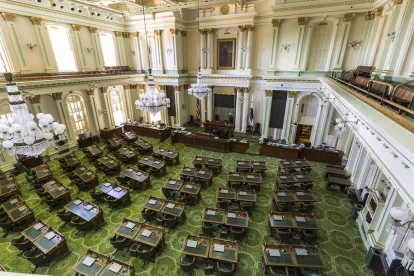In the last two weeks, the California Legislature has enacted numerous bills relating to employer obligations in light of COVID-19. Five of these bills have already been signed into law by Governor Newsom. The remainder may still be signed by Governor Newsom on or before September 30, 2020, which will trigger either an immediate or a January 1st effective date. Below is a summary of the legislation signed into law by Governor Newsom.
AB 2257 - AB 2257 modifies the statutory scheme of AB5. AB5 was itself enacted in 2019 and codified the strict “ABC Test” for classifying workers as independent contractors. AB 2257 adds over fifty categories of workers that are exempt from the “ABC Test” and instead are subject to the more moderate “Borello multi-factor test,” for purpose of determining independent contractor status. For a detailed discussion regarding AB 2257, please click here.
AB 1867 - AB 1867 touches on three areas of employment. First, the bill provides 80 hours of paid supplemental sick leave for California employees of employers with 500 or more employees nationwide and for health care providers or emergency responders that have been exempted from paid sick leave under the federal Family First Coronavirus Response Act. Second, the bill provides for hand-washing requirements and further leave entitlements for food sector employees. Third, the bill requires employers to update their wage statements or other written notice regarding the amount of supplemental paid sick leave. For a detailed discussion regarding AB 1867, please click here.
SB 1159 - Creates a disputable presumption, under specific circumstances, for an employee who suffers illness or death resulting from COVID-19 on or after July 6, 2020 through January 1, 2023, that the employee contracted COVID-19 in the course and scope of employment. The disputable presumption is raised under the following circumstances: (1) the employee tests positive for COVID-19 within 14 days after a day that the employee performed labor or services at the employee’s place of employment; (2) the day on which the employee performed labor or services at the employee’s place of employment at the employer’s direction was on or after July 6, 2020; and (3) the employee’s positive test occurred during a period of an outbreak at the employee’s specific place of employment. A more detailed discussion regarding SB 1159 is forthcoming on Polsinelli at Work.
AB 685 – Requires employers to report an outbreak of COVID-19 to local public health officials. The new law also requires employers to report known cases to employees who may have been exposed to COVID-19 within one business day. Further, the new law expands Cal/OSHA’s authority to issue stop work orders for workplaces that pose a risk of an “imminent hazard” relating to COVID-19, i.e., hazards threatening immediate and serious physical harm. A more detailed discussion regarding AB 685 is forthcoming on Polsinelli at Work.
SB 1383 - Expands the obligation to provide up to 12 workweeks of unpaid job-protected leave during any 12-month period for certain covered reasons to small employees (with as little as 5 employees) not covered before. Further, previously, leave for purposes of caring for a family member was available only if the family member was the employee’s child, a parent, spouse, or domestic partner. SB 1383 permits eligible employees to care for grandparents, grandchildren, and siblings, unlike under the prior CFRA statute. However, employees still need to meet eligibility requirements, predominantly - 12 months of service and 1,250 hours worked in the previous 12-month period, to qualify for family and medical leave. A more detailed discussion regarding SB 1383 is forthcoming on Polsinelli at Work.
These recent changes in California law overlay with the U.S. Department of Labor’s recently published regulatory guidance on September 14, 2020, relating to paid leave entitlements under the federal Family First Coronavirus Response Act (FFCRA), which, among other things, significantly narrows the definition of who is a “health care provider” that may be excluded from the FFCRA’s paid leave entitlement. For a detailed discussion regarding the DOL’s new guidance, please click here.




 />i
/>i

